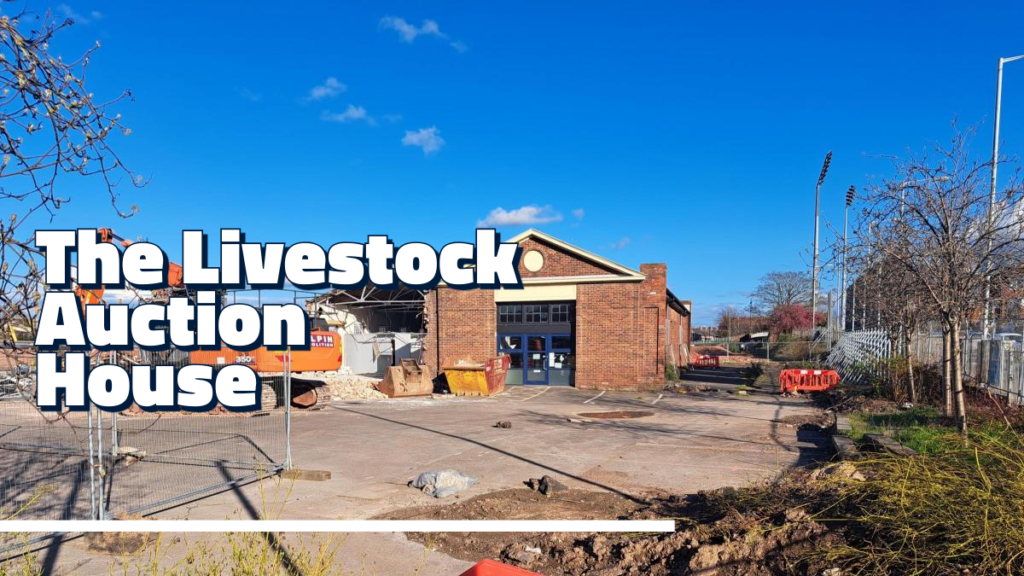The Livestock Auction House has been a cornerstone of agricultural communities for centuries, acting as a bridge between farmers, ranchers, and buyers. It’s not just a marketplace; it’s a vibrant ecosystem where livestock trading thrives, relationships are built, and the agricultural economy finds steady footing. Whether you’re a seasoned rancher or new to the livestock industry, understanding how auction houses operate and their benefits can help you make the most of this essential institution.
What is a Livestock Auction House?
A livestock auction house is a venue where farmers and ranchers bring their livestock—such as cattle, sheep, pigs, goats, and poultry—for public sale. Buyers bid on the animals, creating a competitive environment that ensures fair market pricing. These houses are typically equipped with pens, auction rings, and facilities for handling animals.
Why Livestock Auction Houses are Essential
1. Fair Pricing
Auction houses offer a transparent platform where supply and demand dictate the price. This ensures sellers get a competitive rate for their livestock while buyers pay a fair market price.
2. Access to a Wide Market
Farmers and ranchers benefit from access to a broad audience of buyers, including individuals, businesses, and large-scale agricultural operations. This diverse buyer pool increases the chances of selling livestock quickly and at a good price.
3. Networking Opportunities
Livestock auctions serve as community hubs where sellers, buyers, and industry professionals interact. These interactions foster relationships that can lead to future collaborations or partnerships.
4. Animal Welfare Standards
Reputable livestock auction houses adhere to strict guidelines to ensure the humane treatment of animals. Proper handling facilities and professional staff make the process smoother and less stressful for livestock.
How Livestock Auctions Work
- Preparation
Sellers prepare their livestock for auction by ensuring they are healthy, well-fed, and properly identified with tags or markings. Many auction houses require health certifications to maintain high standards. - Weighing and Inspection
Upon arrival, livestock is weighed and inspected. This data is shared with potential buyers to help them make informed bidding decisions. - Auction Day
On auction day, animals are presented in the auction ring. The auctioneer facilitates the bidding process, with buyers placing bids until the highest offer is reached. - Transaction and Transport
Once sold, the buyer arranges payment and transportation for the livestock. Auction houses often assist with logistics to ensure a seamless transaction.
Tips for Sellers
- Know the Market: Stay informed about livestock prices and trends to set realistic expectations.
- Present Your Best Stock: Healthy, well-groomed animals attract higher bids.
- Work with Professionals: Engage with auction house staff for advice on how to maximize your sale.
Tips for Buyers
- Inspect Livestock: Arrive early to assess the animals you’re interested in. Look for healthy, active, and well-fed stock.
- Set a Budget: Know your financial limits before bidding to avoid overspending.
- Research Auction Houses: Choose reputable venues known for transparency and ethical practices.
Modernizing Livestock Auctions with Technology
In today’s digital age, many livestock auction houses are embracing online platforms to reach broader audiences. Virtual auctions allow buyers and sellers to participate remotely, expanding opportunities for those in distant locations. This modern approach blends traditional practices with the convenience of technology, ensuring that livestock trading evolves to meet current demands.
How WebsiteBuilder.ai Can Help Livestock Auction Houses
If you’re running a livestock auction house, a professional online presence can enhance your business significantly. Platforms like WebsiteBuilder.ai make it easy to create a functional and visually appealing website tailored to your needs.
Key features include:
- Event Listings: Showcase upcoming auction dates, locations, and highlights.
- Online Auction Integration: Allow remote buyers to bid on livestock directly through your website.
- Detailed Listings: Include photos, weights, and health information for animals up for auction.
- Easy Updates: Keep your website fresh with new content and listings.
By leveraging WebsiteBuilder.ai, you can provide buyers and sellers with an efficient, modern way to engage with your auction house while maintaining the traditional values of the livestock industry.
Conclusion
The livestock auction house remains a vital pillar of the agricultural industry, providing a transparent, efficient, and community-driven way to trade livestock. Whether you’re a seller aiming to maximize profits or a buyer looking for quality stock, these hubs offer unmatched value.
In a world increasingly reliant on technology, tools like WebsiteBuilder.ai empower auction houses to stay competitive, attract new clients, and streamline operations. Embrace the best of both traditional practices and modern advancements to ensure the success of your livestock business.
